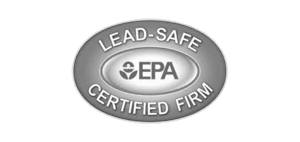Did you know that temperature and airflow affect how fast concrete dries? Experts say concrete’s porous nature makes it prone to water damage. When water gets in, it weakens the floor and can lead to mold, cracks, and adhesive failure.
So, can water damage a concrete garage floor? Yes, it can. But, there are steps to take to prevent it.
Key Takeaways
- Concrete’s porous nature makes it susceptible to water seepage and damage.
- Moisture interference can weaken the structural integrity of concrete.
- Mold growth is common in moist concrete environments.
- Proper waterproofing and containment methods are crucial to preventing garage floor water damage.
- Moisture meters are essential tools for assessing water damage in concrete floors.
Understanding Water Damage on Concrete Garage Floors
Concrete garage floors are very prone to water damage because they absorb water like a sponge. This can cause problems with the floor’s structure and surface. It’s important to know how to handle these issues to keep the floor in good shape.
Water damage can come from many places. Cracks and surface pitting can happen over time. Heavy rain or snow can make these problems worse by letting water seep in from below.
Older garages often don’t have enough insulation, making them more at risk for water damage. This can harm the floor and anything stored in the garage. Also, damaged roof insulation, broken shingles, and loose roof flashing can all increase the risk of water damage.
Keeping drainage systems in good shape is key to preventing water buildup on roofs or around garage foundations. Using trench drains or flood vents can help move water away from the garage, protecting the concrete floor.
It’s important to catch water damage early. Look out for changes in water bills, mold, cracks, spalling, discoloration, and damaged paint. If you notice any of these, assess the damage and call professionals if needed. This ensures both small and big problems get fixed quickly.
In summary, knowing the causes and signs of water damage on concrete garage floors is crucial. Regular upkeep, proper insulation, and quick repairs can help avoid water damage and keep the floor in good condition for a long time.
Impacts and Risks of Water Damage
Concrete floors soak up water like a sponge, especially during floods. This can weaken the concrete over time. Water can also cause the concrete to expand and contract, leading to big cracks. Plus, floodwater often has dirt and chemicals that can stain the floors.
After a flood, moisture can make mold and mildew grow on the floors. Cracks that get bigger or new ones mean the floor is absorbing too much water. A white, powdery substance called efflorescence can be a sign of bigger problems. Musty smells near the floors might mean mold or mildew inside the concrete.
Right after a flood, the concrete surface might start peeling off. This not only looks bad but also makes the floor more vulnerable to damage. Using special coatings like Polyaspartic and polyurea can protect the floor from stains and damage. These coatings can also stop cracks and chips, saving you money in the long run.
Water damage in a garage can cost you money, like higher insurance rates. Fixing the damage to floors, walls, and electrical systems can be expensive. Damage can also make walls and floors look bad and even break down.
Mold and mildew in a garage can harm the structure and make people sick. They can cause breathing problems and skin irritation. Signs of water damage include stains on walls, water spots, rust, and damaged floors.
- Good drainage systems are key to keeping water out of your garage.
- Improving air flow, sealing cracks, checking doors, and looking at roofs and pipes can help prevent damage.
- Regular roof checks and fixing plumbing problems can stop damage before it starts.
Waterproofing your garage floor can protect it from future damage. Keeping up with maintenance and fixing problems quickly is important. This way, your garage floor will last longer and look better.
Conclusion
Understanding if water can damage a concrete garage floor is key. Many things like soil movement and bad installation can cause cracks and uneven floors. Water makes these problems worse by weakening the concrete.
To fix this, using dehumidifiers, moisture barriers, and epoxy coatings helps. Also, choosing flooring that resists moisture is important. Regular checks and good ventilation stop moisture buildup.
Homeowners should seal doors and windows and use moisture meters. It’s also good to let new concrete floors dry before applying coatings. Using concrete moisture sealers on existing floors helps too.
Keeping humidity levels low in concrete slabs is crucial, as per ASTM standards. This prevents long-term damage. But, some floors can handle more moisture.
Getting professional water damage restoration help quickly can save money and keep the floor in good shape. By following these tips, homeowners can fix water damage and keep their garage floors strong.













